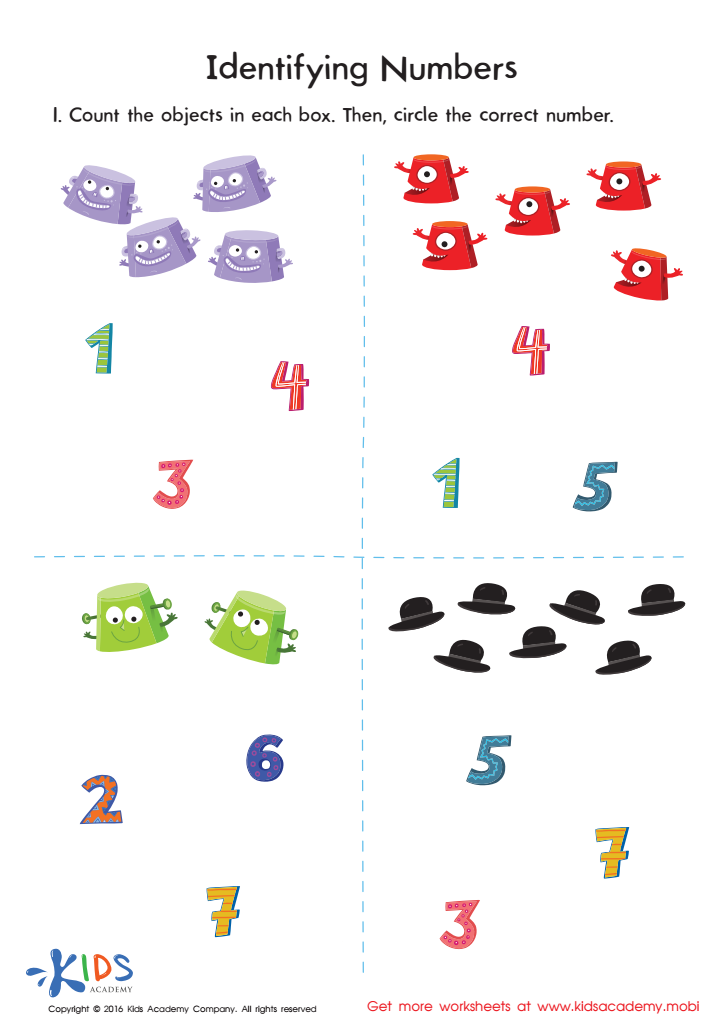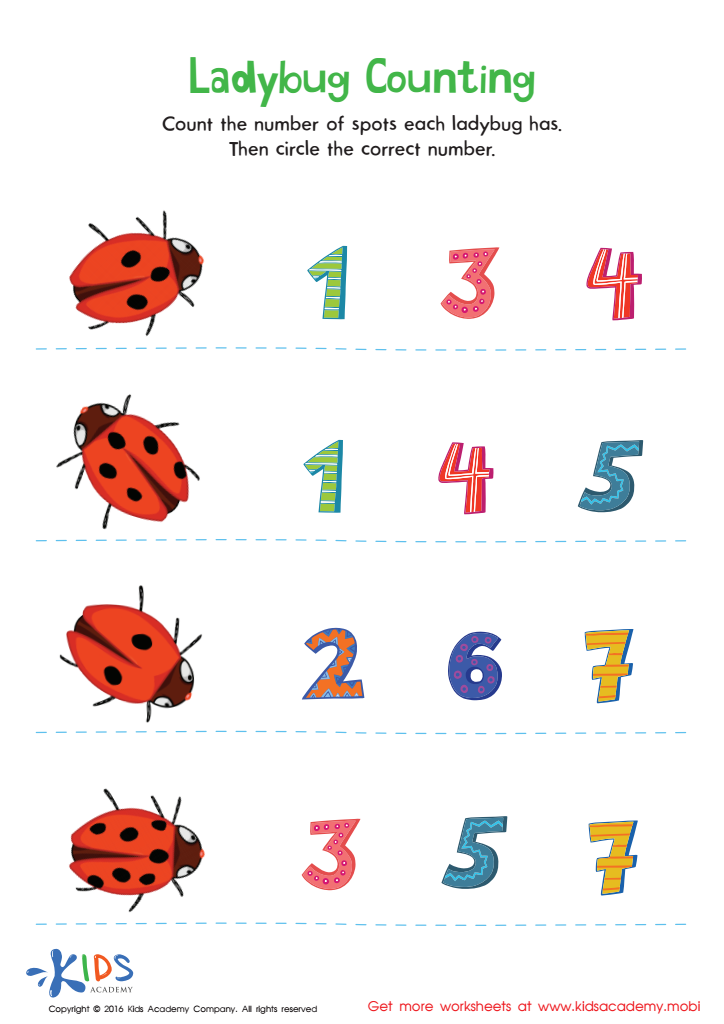Number Recognition Extra Challenge Matching Worksheets for Ages 5-6
6 filtered results
-
From - To
Enhance your child's number recognition skills with our engaging "Number Recognition Extra Challenge Matching Worksheets" for ages 5-6. Designed to support early learners, these worksheets provide exciting matching activities that promote number identification and strengthen cognitive abilities. Each worksheet encourages critical thinking, allowing students to match numbers with corresponding visuals, further reinforcing their understanding. Perfect for classroom use or at-home practice, these worksheets cater to various learning styles while making math fun! Download these extra challenge worksheets today and help your child build a solid foundation in number recognition, setting them up for future success in math and learning.
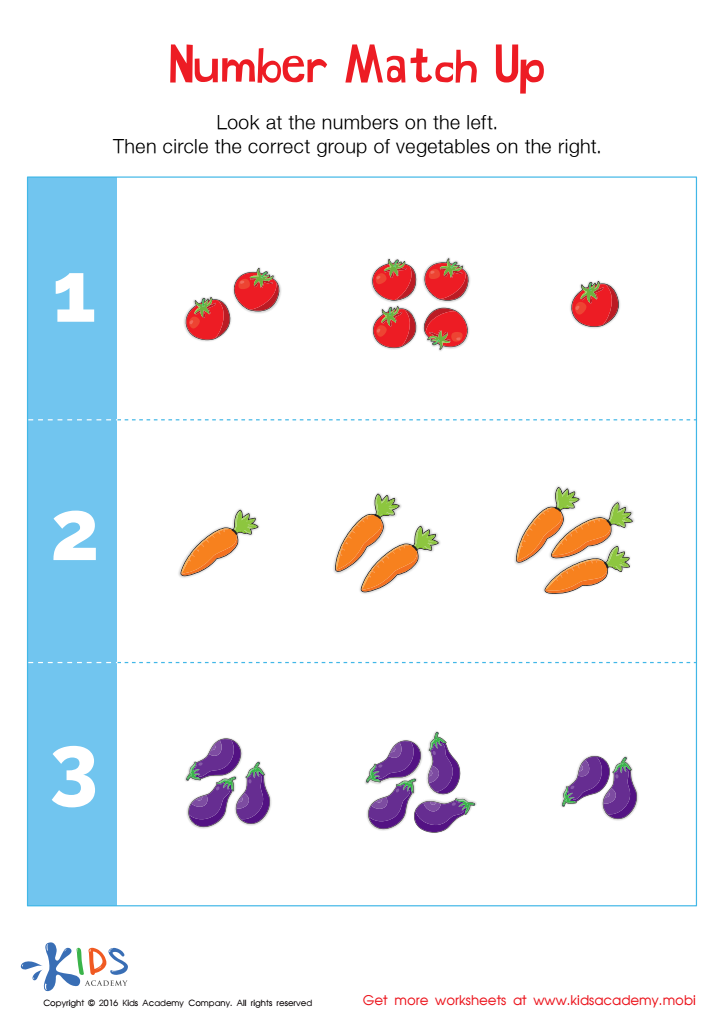

Number Match Up Worksheet
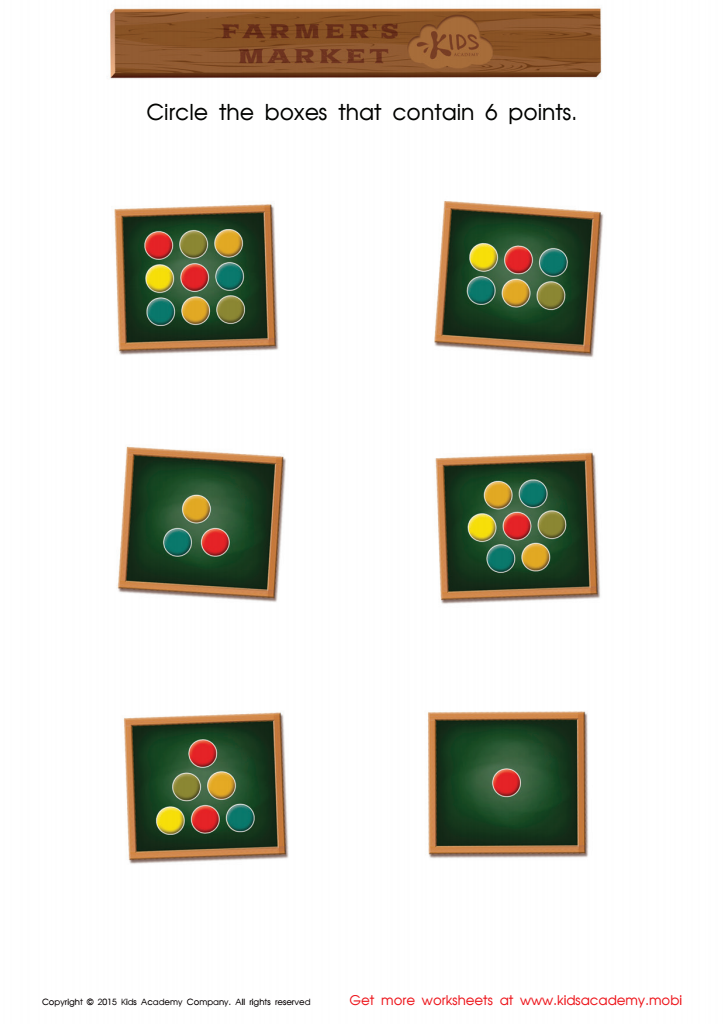

Count and Match Points 6 Math Worksheet
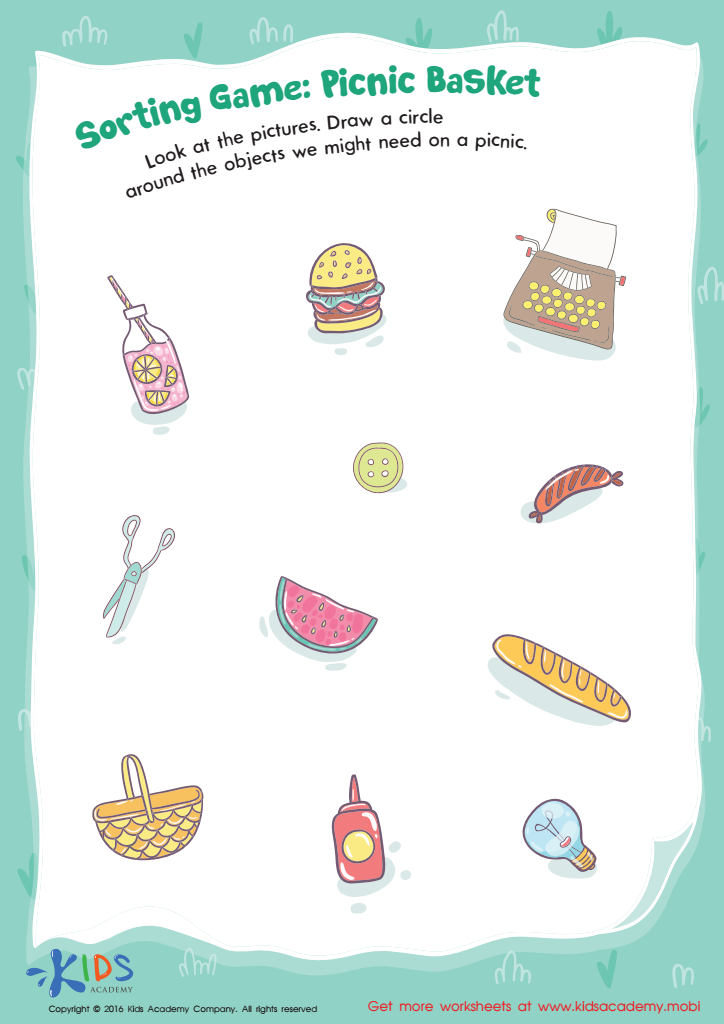

Picnic Basket Sorting Worksheet
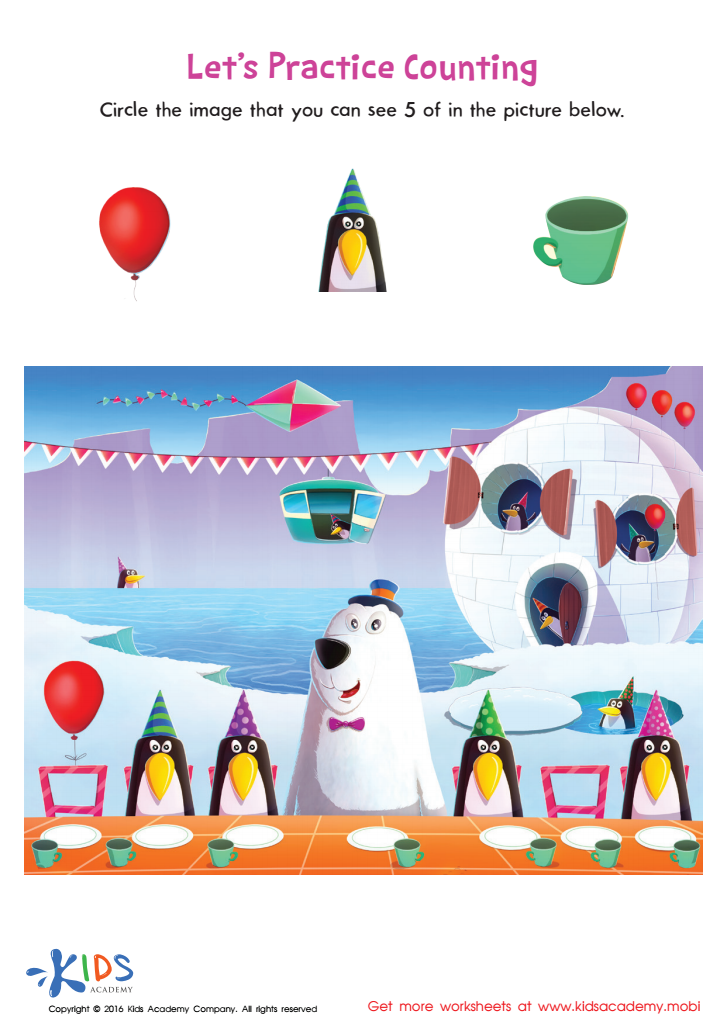

Counting Worksheet: Let's Practice Counting
Number recognition is a fundamental skill for young learners, laying the groundwork for future math understanding. For children aged 5-6, mastering number recognition is crucial as they begin to engage with basic arithmetic and problem-solving tasks. The "Number Recognition Extra Challenge Matching" activity serves as an engaging way for parents and teachers to reinforce this skill.
By incorporating playful challenges, this activity enhances cognitive development and boosts confidence. Engaging with numbers through matching aids in reinforcing memory and visual recognition, helping children to identify numbers quickly and accurately. This foundational skill not only supports math learning but also promotes critical thinking and pattern recognition.
Moreover, this activity encourages collaborative learning between parents, teachers, and children. When adults participate, they model positive attitudes towards learning, fostering a love for numbers and academic success. Additionally, the activity can be adapted to cater to different learning styles, ensuring that each child is challenged appropriately.
Ultimately, supporting number recognition through fun and interactive means sets the stage for children’s academic journeys, making it a vital focus for both parents and teachers. By prioritizing this developmental milestone, adults invest in children’s educational futures, paving the way for confident learners in mathematics and beyond.
 Assign to My Students
Assign to My Students

